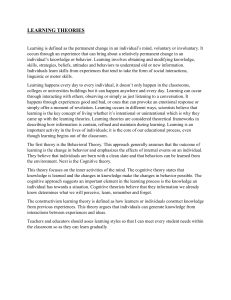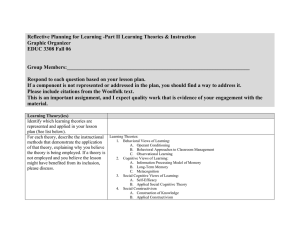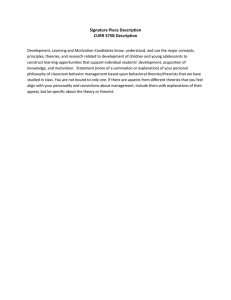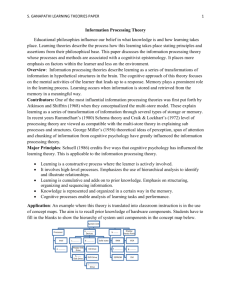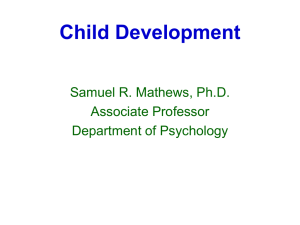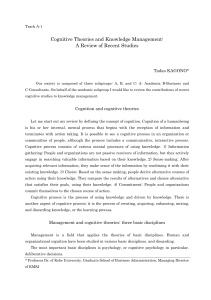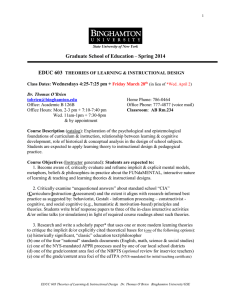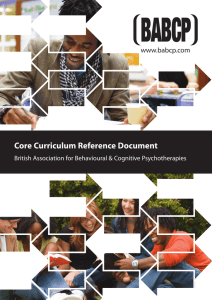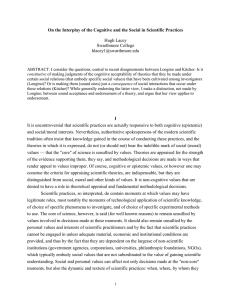Exam III Study Guide ch 8_10.doc
advertisement
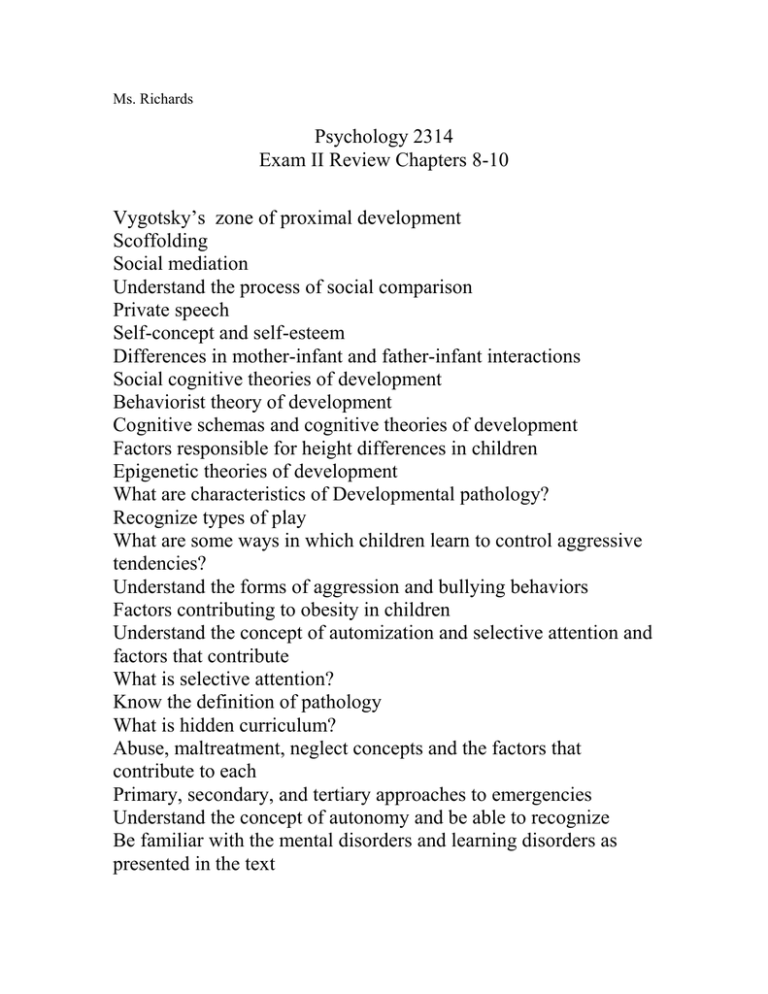
Ms. Richards Psychology 2314 Exam II Review Chapters 8-10 Vygotsky’s zone of proximal development Scoffolding Social mediation Understand the process of social comparison Private speech Self-concept and self-esteem Differences in mother-infant and father-infant interactions Social cognitive theories of development Behaviorist theory of development Cognitive schemas and cognitive theories of development Factors responsible for height differences in children Epigenetic theories of development What are characteristics of Developmental pathology? Recognize types of play What are some ways in which children learn to control aggressive tendencies? Understand the forms of aggression and bullying behaviors Factors contributing to obesity in children Understand the concept of automization and selective attention and factors that contribute What is selective attention? Know the definition of pathology What is hidden curriculum? Abuse, maltreatment, neglect concepts and the factors that contribute to each Primary, secondary, and tertiary approaches to emergencies Understand the concept of autonomy and be able to recognize Be familiar with the mental disorders and learning disorders as presented in the text What are the characteristics involved in maintaining a positive attitude? What are functions of a family? Understand the characteristics of the rejected and neglected child Be familiar with the factors associated with the child at risk for low school performance Drug use/abuse among adolescents The effect of generational forgetting Be familiar with puberty, what influences puberty, and the hormones involved Be familiar with eating disorders and the theories to explain Be familiar with the primary and secondary sex characteristics Understand the factors that affect teen pregnancy Be familiar with Erikson’s psychosocial stages Brain development and adolescent egocentrism, personal fable, and imaginary audience Hypothetical and deductive thought Intuitive and analytic thought Experiences in middle school and high school Understand Identity diffusion, foreclosure, moratorium, and achievement and political identity, gender identity, vocational identity, and religious identity Understand the attitude and emotional changes in parent child relations as they age Understand the consequences regarding the parent/child relationship when the parent is high in parental monitoring and control How do sex-education programs affect sexual activity by teenagers Understand rumination, obsession, and fixation behaviors What is a positive strategy for helping violent teenagers? ****Also, review any terms or concepts not listed here, but listed on the chapter slides from class.
